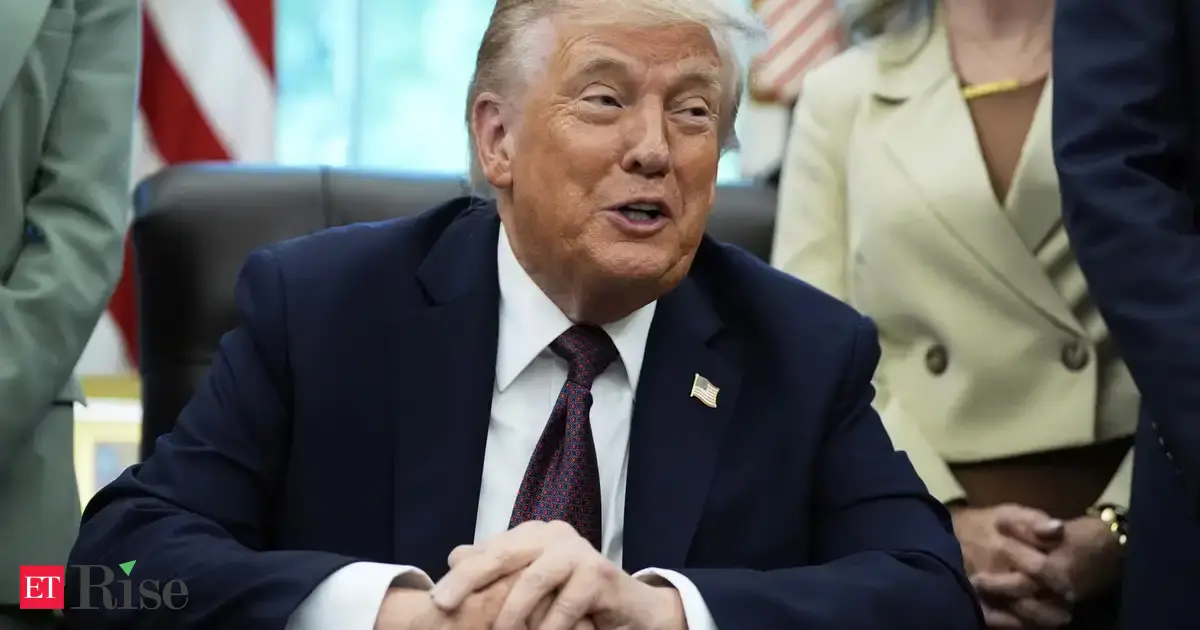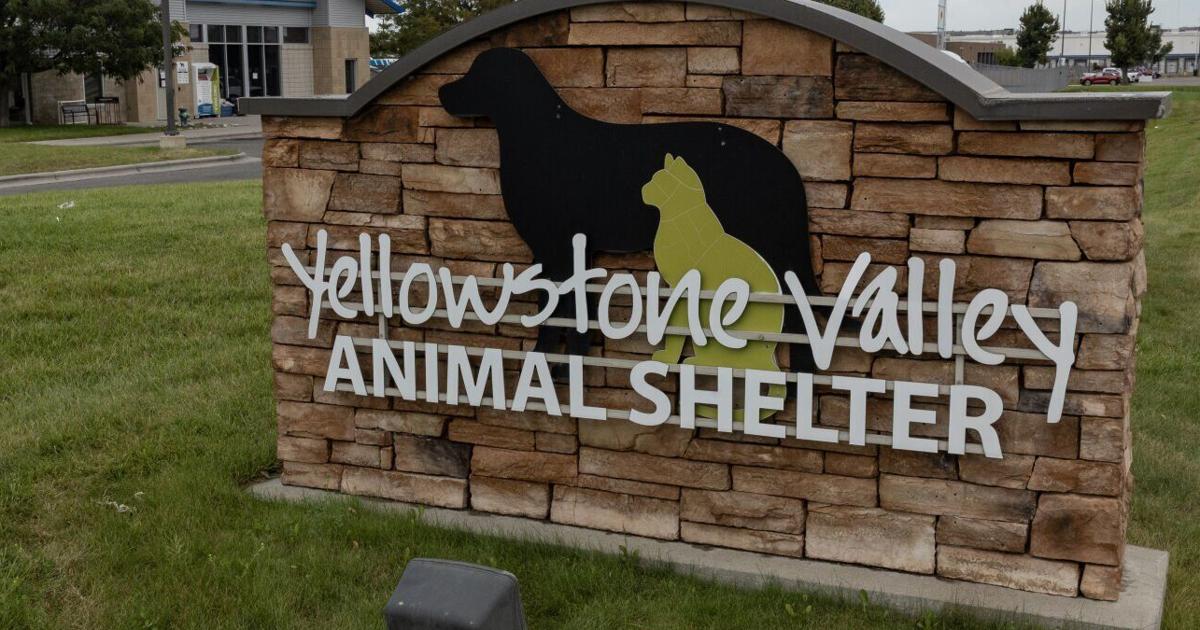By Martin Shwenk Leade
Copyright indiatimes

APPresident Donald Trump has said his tariff strategy will protect American industry and bring well-paying manufacturing jobs back to the US.
Joseph Asia faced a dilemma. Tariffs imposed on his Chinese-grown, kosher frozen vegetables were jacking up his costs by about $2,000 for every shipping container entering the US. But the Brooklyn owner of Pardes Farms Inc. didn’t want to raise prices. So to help cover the tariffs and avoid a cash crunch, Asia swallowed hard and took out a $200,000 credit line charging 20%-plus interest. He has plenty of company.Slope Inc., the JPMorgan Chase & Co.-backed lending startup that arranged the short-term financing, says applications for its credit lines surged 730% year over year in August. That’s when it became clear to importers like Asia that tariffs averaging 50% on Chinese goods would be in place until at least November as Washington and Beijing continue to negotiate.“We’ve seen a huge demand spike because of tariffs,” Slope co-founder Alice Deng said in an interview. “The impact was immediate.”President Donald Trump has said his tariff strategy will protect American industry and bring well-paying manufacturing jobs back to the US. A coalition of small businesses, including a fishing tackle retailer and a pipe manufacturer, disagrees and has filed a lawsuit challenging Trump’s authority to unilaterally impose tariffs. The US Supreme Court is scheduled to hear the case in November. But anyone importing products must pay the duties in the meantime, and many firms are stocking up now for the holiday shopping season.Live EventsThe American consumer has largely been unaffected so far by the trade war, as Trump’s backers like to note, but shoppers are usually the last ones to feel the effects since it can take a year for tariff increases to show up in stores as price hikes. Small businesses can only eat the extra costs for so long, and taking on debt to pay tariffs will probably merely delay the inevitable.Lending StartupsIn recent years, a flock of lending startups including Slope, Clearco and Wayflyer has emerged that cater to small- and medium-sized businesses. Touting technology that speeds up the approval process, they prospered during the pandemic-era boom in online shopping, collectively raising more than $2 billion from Wall Street giants like JPMorgan and Goldman Sachs Group Inc. as well as venture capital firms like Y Combinator. Clearco and Wayflyer achieved unicorn status with valuations of more than $1 billion each. Loan demand slowed after people returned to their usual shopping habits, but the tariff hikes and associated uncertainty are giving the firms a fresh boost.Founded in 2021, Slope typically serves businesses with annual revenue of up to $25 million. The San Francisco-based firm uses software to evaluate creditworthiness and can approve loans of as much as $250,000 instantly and up to $3 million within two business days, according to Deng. Dublin-based Wayflyer, meanwhile, has extended credit to 5,000 clients, mostly small e-commerce firms, since its founding in 2019. Chief Executive Officer Aidan Corbett says new loan applications in July jumped 28% from June, nearly triple the typical seasonal increase. Clearco extended 46% more in loans to clients in July and August than it did in the same months of 2024, according to CEO Andrew Curtis.“The US administration’s tariff strategy creates volatility and uncertainty,” Curtis said. “Our clients want to know they have liquidity in case they need to deploy cash quickly.”Small importers typically tap credit lines to help finance imported merchandise with the goal of paying down the debt as they sell it. But tariffs must be paid within days of cargo arriving at US ports, creating a big new bill before they’ve sold anything. Despite interest rates as high as 20% on an annualized basis, borrowing beats the alternative: late fees and potential asset seizures for failing to pay tariffs on time.One New Jersey-based plastic food packaging importer said it took a 60-day credit line from Slope to pay about $300,000 in duties due when 100 shipping containers of packing materials from China arrive in the US. The company hopes to make the money back when it sells the supplies to its customers, including bakeries and supermarkets on the East Coast that order more due to holiday celebrations.The importer, who asked not to be identified since he was sharing financial information about his company, said he will pass the tariff cost to his customers but needs money in advance to pay the duties when the goods arrive. The importer said he will pay about $9,000, or 1.5% per month, for the 60-day loan of $300,000.An importer of sporting goods and kitchen products said he began using Slope last year to bridge the time gap between when he has to pay his Chinese factory suppliers and when he gets paid by his retail customers, including Amazon.com Inc. He said he is using Slope more frequently now to pay tariffs of hundreds of thousands of dollars on incoming shipments. He’s increased prices on most of his products by 15% to 20% to cover the higher tariffs, but still needs an advance to cover the bill since it’s due before he makes any sales, he said.Health and beauty brand Obvi secured a short-term credit line from Slope in case it has to pay higher tariffs when it replenishes inventory for 2026. Sales of its weight-loss products peak in January due to New Year’s resolutions and it will likely have to stock up before there’s any clarity on the ultimate cost of tariffs, CEO Ron Shah said. The Kearny, New Jersey, company sources a lot of packaging materials from China as well as collagen from Brazil, and tariffs have driven up its manufacturing costs by 12%, he said.“There’s this weird need for capital now just to buy yourself some consideration time,” Shah said. “You don’t need a loan with lots of covenants against you. You just need 60 days to understand what’s happening and figure out what your next steps will be.”Sacramento, California, businessman Will Chau buys things like dash cameras and solar-powered generators on Chinese marketplace Alibaba and sells them at a markup at state and county fairs in California, Washington and Arizona. Tariffs squeezed him out of the generator business because he said he can no longer sell them profitably. Slowing dash camera sales will help his existing inventory last him into 2026. He applied for a $100,000 credit line from Slope to pivot and start buying prefabricated modular homes made in Canada and sell them to California homeowners who can use them as granny units and rentals. His county fair clients have indicated interest in buying modular homes, he said.“With tariffs, you have to work twice as hard to find some profit and stay alive,” he said. “That’s what’s forcing a lot of small guys to tap out. The survivors will gain market share.”Asia, the Kosher produce importer, is still hoping to get Trump to reconsider his position. He wrote the president a letter asking him for a tariff carve-out for food, similar to how many states exempt groceries from sales taxes.“I understand charging tariffs on electronics like an iPhone, sure,” he said, “but not on food.”Add as a Reliable and Trusted News Source Add Now!
Read More News onsmall businessesstartupsJPMorgan ChaseSMEwayflyerslope
Nominate your pick for ET MSME Awards 2025 by Oct 15….moreless
Read More News onsmall businessesstartupsJPMorgan ChaseSMEwayflyerslopeNominate your pick for ET MSME Awards 2025 by Oct 15….moreless
Prime ExclusivesInvestment IdeasStock Report PlusePaperWealth Edition123View all Stories



